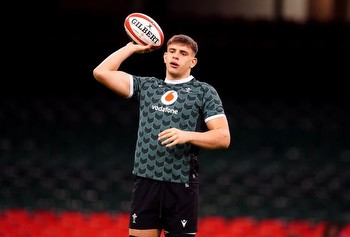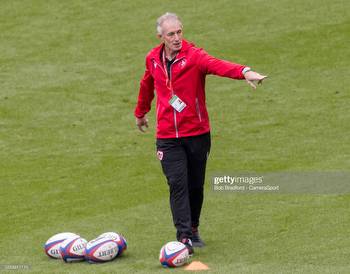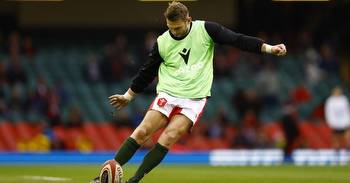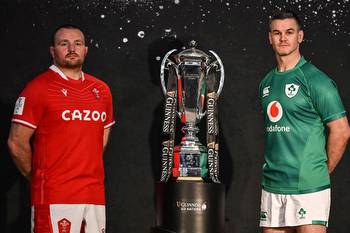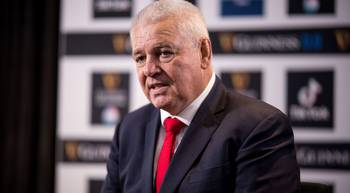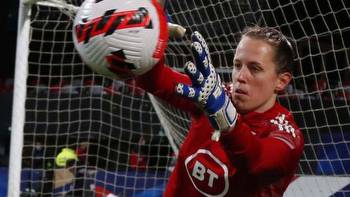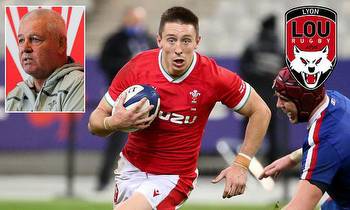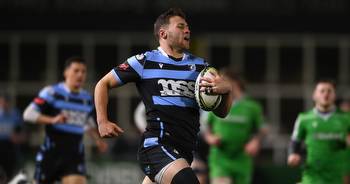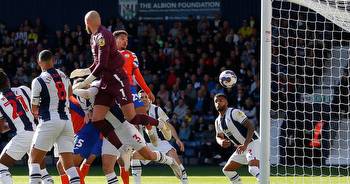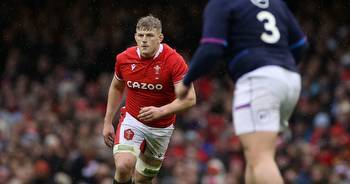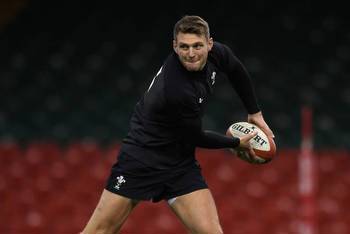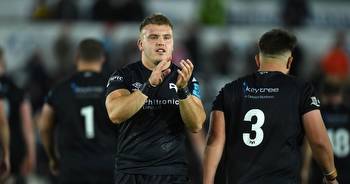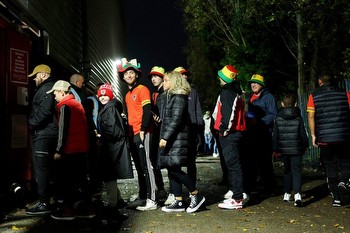Inside Cardiff City Ladies new takeover: How LinkedIn DM turned into Champions League bid
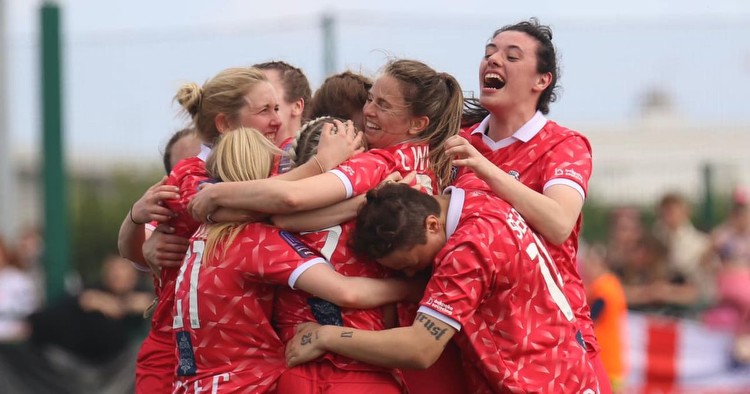
Dauntlessly slipping into the LinkedIn direct messages of a prospective investor while he holidays in Spain.
As far as football takeover origin stories go, that of Cardiff City Ladies – the standalone women’s Welsh club with European pedigree currently competing in tier three of the English system – and Dragons23, a consortium fronted by the multibillion dollar tech unicorn Canva, certainly has the air of the modern football era, if not significant good fortune.
Of course, that’s arguably unfair.
A women’s club that, as the owner of the aforementioned LinkedIn inbox and now club co-owner Julian Jenkins, along with Canva chief financial officer Damien Singh, so succinctly describe, has been “thrown away, thrown away, seen as s*** on the bottom of the shoes, thrown away… but kept going,” was arguably due a sliver of random luck eventually.
Not that either Jenkins – a former director of Cardiff City FC and consultant for FIFA and UEFA – nor Singh – the Leicester-born Canva chief financial officer responsible for one of the tech world’s biggest success stories – places much countenance in luck.
Nor do former Wales internationals and former club owners Karen Jones, Michele Adams and UEFA vice president Laura McAllister, three women largely credited with the advent of a recognised Welsh women’s national team and have run Cardiff City Ladies for most of its existence through blood, sweat and tears.
As the truism goes, luck is what one makes of it. A brazen slide into some LinkedIn DMs is merely part of a meticulous masterplan, one geared at returning Wales' 'most successive women's club' to its previous storied heights.
“It’s one of the greatest sporting stories there is,” declared Jenkins on Thursday evening, hours before the official news of bombshell takeover.
On paper, Jenkins and Singh acquired a significant majority of the Cardiff-based club, though former owners Adams and Jones maintain a minority stake and veto power.
Yet, the scale of the acquisition's potential and meaning is difficult to fathom.
Sat around a small table in the clubhouse of Ocean Park Arena, the multi-use sports facility from which Cardiff City Ladies share a leased pitch for training and competition, are Jenkins, Adams and Jones.
They are joined by the latter's two content-looking corgis listening intently to the animated plans for a future never before imagined: a state-of-the-art 10,000-seater stadium, reinvigorated youth pathways, semi-professional status and eventual full remuneration packages for players, a return to the Women's Super Lea-- no, Women's Champions League.
Outside in the crisp Autumn air, the players train for their second match of the 2022-23 season, an away trip to Portsmouth on Sunday that could deliver a more than humbling reminder of the challenges that lay between this Thursday evening and UEFA's glittering showpiece event.
An opening day defeat to Ipswich was hardly how the club envisaged its return to tier three football, not after an enthralling promotion punctuated by a memorable run to the round of 16 in the FA Women's Cup.
Nevertheless, the mood within the clubhouse is undeniably celebratory and anticipatory, though all parties refrain from stretching too far into bombast.
Jenkins and Singh’s search for the perfect football club has been long and arduous, with fallen giants Yeovil Town their most recent almost-but-not-quite love story.
Jenkins is philosophical on the previous failed attempts. “Things happen for a reason,” is the preferred mantra of the Welshman. Besides, the duo’s desires for a club acquisition were specific: an emphasis on the established intangibles of passion and history were a must. Add in clear ambitions for sustainable growth, meaningful community engagement and a necessary appetite for the daring.
That the paradigm club might exist within women’s football had not crossed the pair’s minds. Not until the blinking of Jenkins’ LinkedIn app while holidaying in Spain.
An intrigued phone call to then-co-owners Adams and Jones was followed swiftly by a plane ride to Australia to visit Singh.
Against the backdrop of the summer's historic Women’s World Cup (which Singh, along with his two daughters, took in with notable marvel), the prospect of investing in women’s football never felt so obvious.
"In the end, it was the easiest decision," Jenkins says. "We've been engrossed ever since."
Six European campaigns reduced to tier four relegation
Since 1975, Cardiff City Ladies has been a cornerstone of women’s football in Wales. And since 1975, the club has existed against the odds.
The journey up and down the football pyramid is punctuated by numerous rebrands, breakaways and a general apathy from larger investors to provide further support. Since breaking from Cardiff City FC in 2003 after differences in future objectives, the club has operated independently of any affiliated men’s side, meaning it subsequently relies on the tenacity of former players-turned owners Adams and Jones, along with tireless volunteer energy and the sacrifices of current players to keep it competitive.
As their bio reads, Cardiff City Ladies are “Wales’ most successful women’s team”. Their two stints in the English top-flight between 2006 and 2011, along with 11 Welsh Cups titles and six Europeans campaigns would certainly back the claim, however bold. So too would their alumnae list, a sort of Who's Who in Welsh women's football that includes NWSL MVP Jess Fishlock, current Chelsea captain Sophie Ingle and former Manchester City forward Natasha Harding.
Yet, the glamour of the past has slowly given way to more humble settings and claims as the landscape of women's football grew ever-more financially competitive The club’s laurels came under risk of all but existing in sepia tint after relegation to the fourth tier, the club’s lowest-ever standing, in 2021-22 following financial troubles compounded by Covid-19.
Amid a turbulent season, many began to dub the club 'Wales’ team of the past'.
“We didn’t like that,” says Adams. “We didn’t see ourselves as the club of the past. We saw ourselves as a club that was having a difficult season. Even if we had stayed up, we realised we weren’t the club we were.”
An introspective gutting of the club led to a top-down overhaul plus the implementation of a new five-year plan. Promotion to tier three and a memorable FA Cup run were priorities in the first year. Investment was key for the second, gradual growth in the third. The ultimate goal? A return to the heights of Championship football after a decade existing outside of it.
“Anything beyond that requires mega-mega bucks,” Adams conceded last season.
'Pound for pound we can compete with anyone'
Jenkins and Singh undeniably have the “mega-mega bucks”, though the new co-owners have no intention of ostentatiously hurling money at the women’s club in wild hopes of securing WSL status.
Due diligence is the operative, and oft-used, phrase, but Jenkins and Singh know its value. Their extensive business backgrounds suggest as much.
Jenkins’ pedigree in football reaches back to the start of the millennium and spans Uefa, Fifa, Major League Soccer, the Scottish Premiership and Premier League, among others. Born in on a council estate in Ely, Cardiff, Jenkins was the former director of Cardiff City FC and helped oversee the club’s rise from League Two to the Premier League.
Since Singh's involvement in the graphic design platform’s financial development seven years ago, Canva has become Australia's fastest-growing company in history and one of the tech world's most lucrative success stories, with a current valuation of just under $26billion (£21billion).
The pair ultimately aspire to create a “fiscal blueprint” for Cardiff City Ladies that can be utilised across the football gamut to run more sustainably and community-focussed football clubs.
Jenkins says the club are inspired by the data-driven models of Premier League sides Brighton and Brentford. On pitch success will be driven as such, with an emphasis on development and acquisition, while returning the club to its former "star factory" identity.
"The day Chelsea buy a goalkeeper from us for £300,000 will arrive," Jenkins says.
On-pitch success will be succoured by non-football revenue, of which plans are being intensely explored from talk of a 10,000-seater multi-purpose stadium as part of a larger centre of excellence for women, to an accompanying hotel, to various Canva marketing opportunities and merchandise.
Stadium chatter builds extraordinary excitement around the club. The club currently trains and competes on a shared 3G pitch leased from a local multi-sports facilities on a pay-to-play model. Competing in tier-three, the club will need to find a new competitive ground due to regulation guidelines.
According to Jenkins, every penny earned will be reinvested into the club, no exceptions.
"This isn't a trainset. So often, that's what football ownership becomes. A cash cow, a toy, something a football club was never formed to be," Jenkins says.
"You have to be effective, efficient, innovative but ultimately you have to have people around who also care and deliver.
"I think personally with the people who are here, with the opportunity in terms of catchment, with people thinking of the game differently, pound for pound we can compete with anyone."
'A men's team is a distraction'
As a standalone club in the women’s game, maintaining that identity was paramount to both parties when agreeing the takeover, which sees Jones and Karen maintain a minority stake and work closely on the day-to-day running and decision-making..
With the fervent buzz around women’s football, providing the game with a women’s club capable of competing on its own can be viewed as an enticing marketing proposition.
But the threat posed to women’s teams by the recent push for more affiliated clubs underpins much of the reasoning.
While many women’s teams enjoy the financial boon engendered by an affiliated men’s team’s successes, the women’s set-ups are also at the mercy of footballing whims. Reading men’s relegation to League One last season coincided with the women’s relegation to the Championship.
The women’s team were subsequently deemed the most easily disposable and have since been reduced to part-time operation. Doncaster Belles and Yeovil Town offer similar cautionary tales.
“We don’t need distractions,” explains Jenkins. “I think that’s why this club have been so successful and so powerful, they’ve focussed on themselves.”
The only Welsh club in England
While Cardiff City Ladies prides itself on its identity as a women-focussed club, it's identity as the only Welsh club in the English system inspires its own unique dimension of pride.
Jones and Adams have long held the identity close to their hearts, and with the growth of the women's game, it is a point of pride the new owners are keen to amplify with Cardiff City Ladies being seen as not only the capital city's club, but the women's club for an entire nation.
"You look at Barcelona," Jenkins says. "They represent the Catalonian country. Why can’t we represent the country in the same way Barcelona represents their country?
“Some of the club's story has been airbrushed for whatever reason,” he adds.
“But on the shoulders of the people who were the pioneers we stand. And I do believe this needs to be a standalone club that represents the Welsh nation every weekend across the bridge.”
Semi-pro status and a return to Europe
A club with the recent air of a fallen giant has long held the spirit of a sleeping behemoth. But after nearly half a century of volunteer grafting and parsed sponsorship, the club boast the level of financial might no women’s team in Wales has yet to relish.
Thus, the aspirations under the new investment aim nothing short of the very top.
This season, gaining a foothold in tier three ahead with promotion in sight for the following season is the realistic aim. Next season will also see the club operate from a semi-professional basis, with the hope of drawing in more talent before eventually offering full remuneration packages for contracted players.
A long-awaited rebrand is also on the cards, one that more widely encapsulates the club's national sentiment.
While an explicit time-line has not yet been established for a return to the WSL and Champions League, the goals are not viewed as outlandish visions for the near future.
Returning the club to its heyday of producing talent for the national team is also a major goal. Despite the heady list of past stars to walk through its doors, Manchester United starlet Carrie Jones is the last big name to have her roots honed at the club.
Fostering the next generation is crucial, as is cutting themselves a club to return to for those players looking towards the end of their careers.
As for what else the future holds, the ambitions are endless and heady. But such is the nature of the club.
"We’ve always punched above our weight," Adams says. Now, they have the support to punch harder.

